We may earn money or products from the companies mentioned in this post. This means if you click on the link and purchase the item, I will receive a small commission at no extra cost to you ... you're just helping re-supply our family's travel fund.
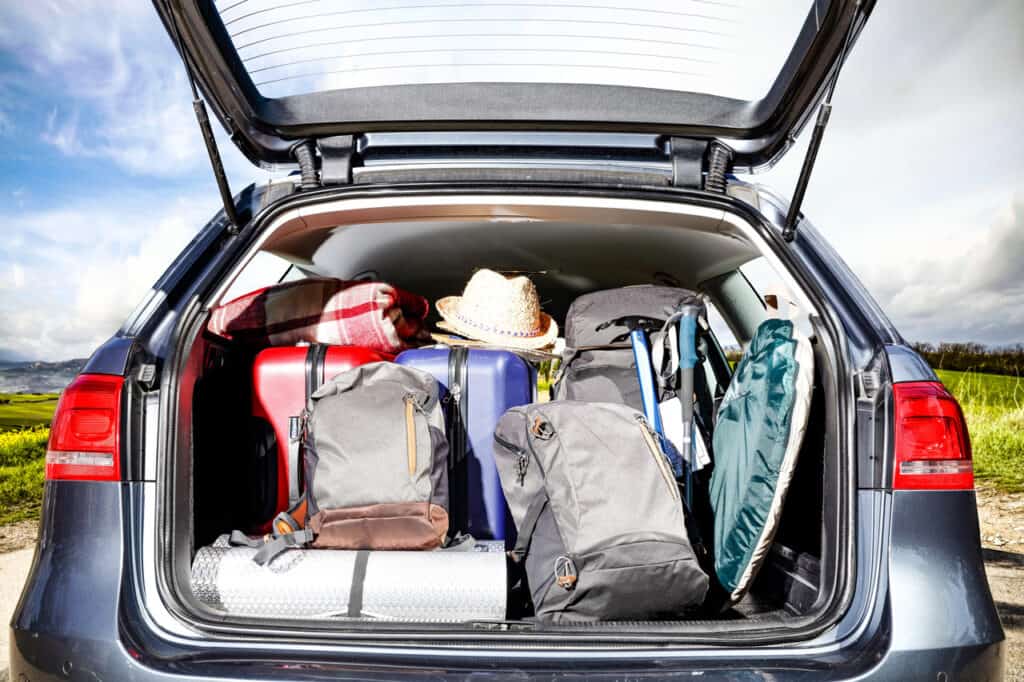
A cross-country drive can be thrilling and freeing, but it also tests your preparedness. Nothing ruins the magic like a flat tire in the middle of nowhere or a phone that dies when you need GPS most. What this really means is: you need more than just a full tank and a playlist. With the right kit, you’ll handle surprises, stay comfortable, and keep your focus on the open road. Below are 12 road trip essentials you won’t want to leave home without. They’re practical, easy to pack, and proven to make long miles feel lighter. Plan ahead, and the journey becomes part of the adventure not the stress.
1. Tire Repair Kit + Portable Air Compressor
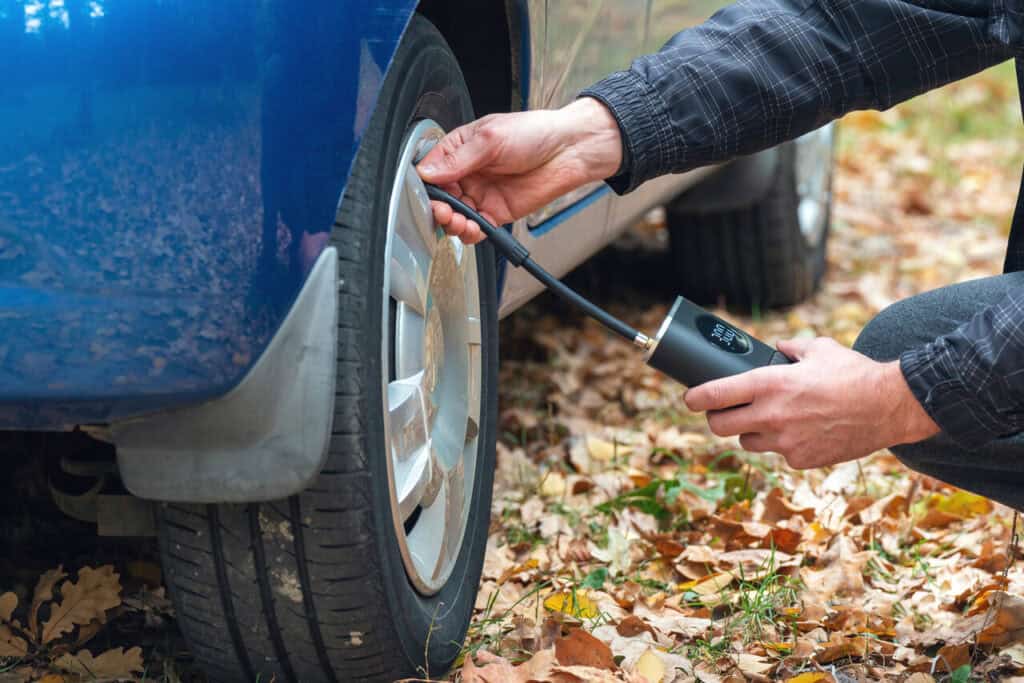
When a tire deflates far from help, a repair kit and small air compressor can save hours. A plug kit seals punctures, while the compressor restores pressure so you can reach the next station safely. They don’t replace a proper fix, but they buy crucial time. Keep both in your trunk and test them before you leave. The few extra minutes spent checking can save hours of waiting. If you’ve ever been stranded on a shoulder in the dark, you know how valuable this backup can be.
2. First Aid Kit Tailored for Travel
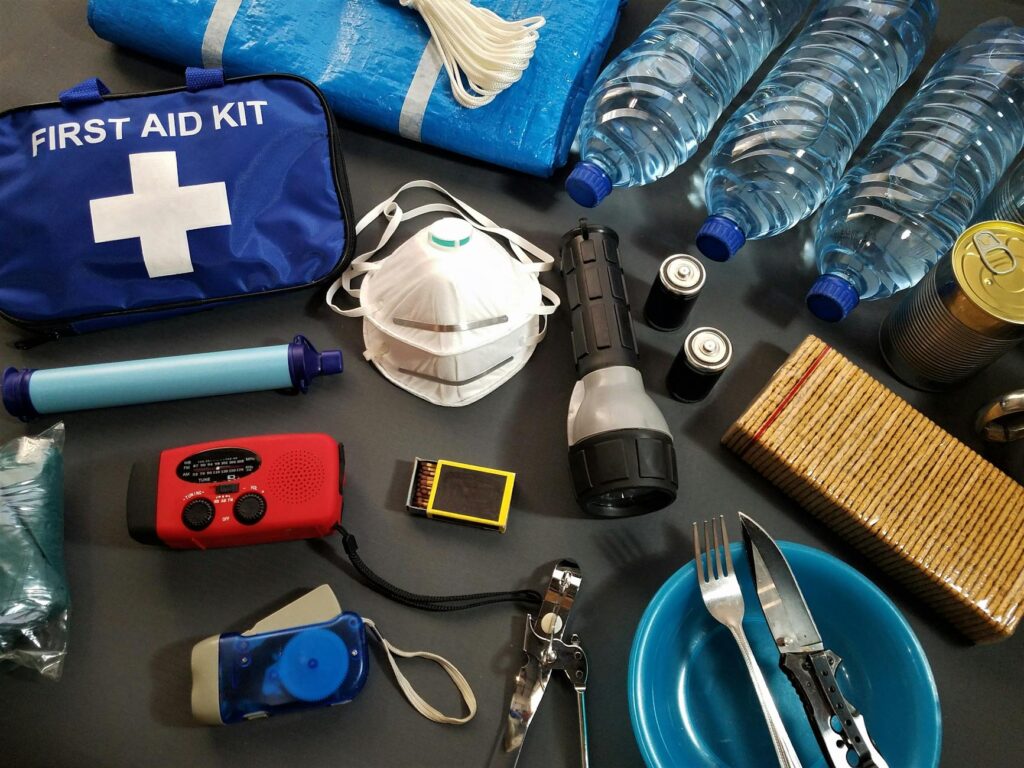
You can’t predict every scrape or sting, but you can prepare. A road trip kit should include antiseptic wipes, bandages, gauze, tape, tweezers, pain relievers, and your prescriptions. Add motion sickness tablets, insect bite cream, and an emergency blanket. Accidents happen quickly, and roadside clinics aren’t always close. Keep the kit within reach not buried under luggage. It’s one of those items you’ll hope you never need but be grateful for the moment you do.
3. Reliable GPS or Offline Navigation

Phones are great until service drops or batteries die. Always pack a dedicated GPS or download offline maps before leaving. Paper maps still earn their place in remote areas. Preload routes, check real-time traffic when you can, and know backup paths. Navigation failures can cause unnecessary detours or stress. You’ll drive more confidently knowing you can always find your way. Nothing keeps a long journey calmer than knowing exactly where you are.
4. Extra Charging Gear & Power Bank
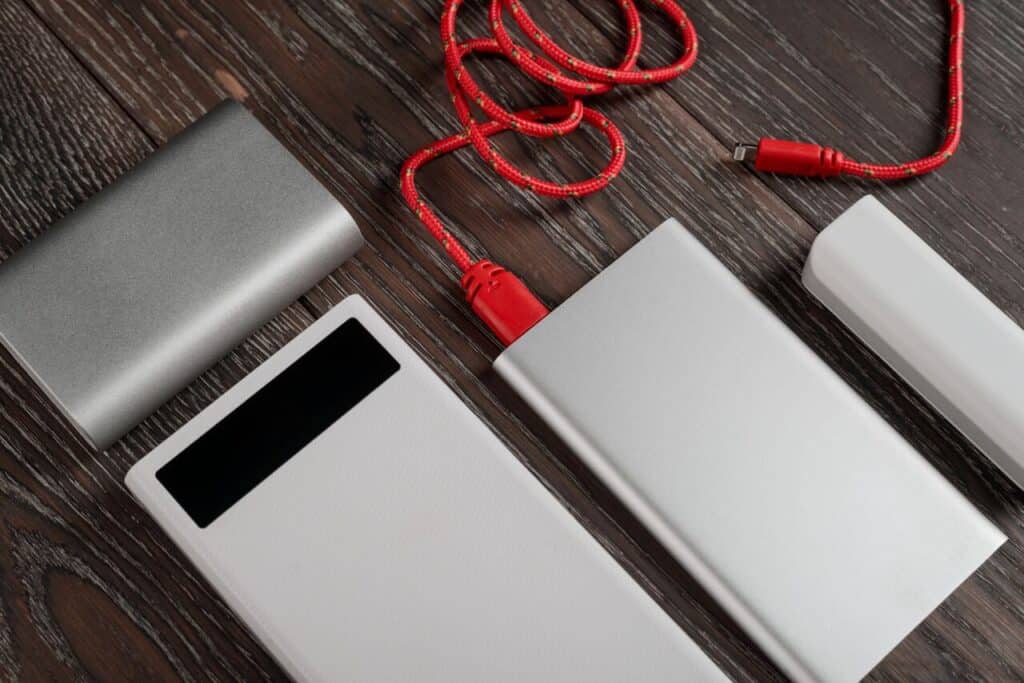
Every essential device needs power. Bring a power bank of at least 20,000 mAh, a car charger, and cables that actually fit your gadgets. A solar charger helps when outlets are scarce. Label each cord and store them neatly so they’re easy to grab. Power is your link to music, maps, and safety tools. Without it, even the best plan falls apart. Keep your electronics charged, and you’ll never lose touch with what matters mid-route. Pack backup batteries for smaller devices, and test all gear before leaving. That extra foresight saves you from mid-trip frustration.
5. Emergency Food & Water Supply
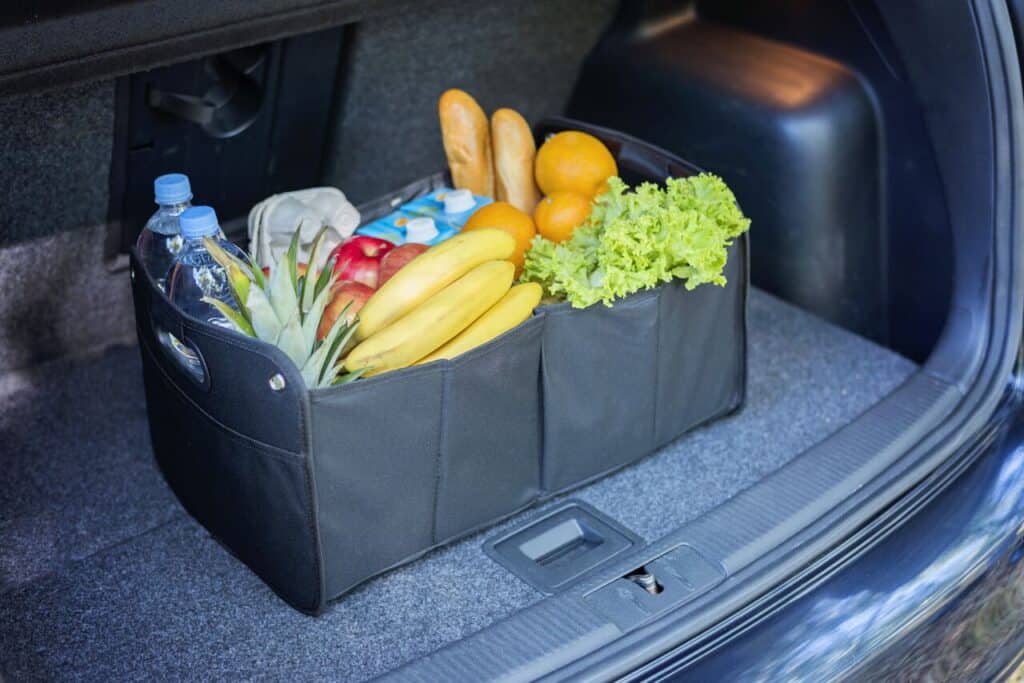
Long drives often mean long stretches without reliable stops. Pack protein bars, jerky, trail mix, and dried fruit for energy that lasts. Carry at least one gallon (about four liters) of water per person, and store it in sturdy bottles. It’s not just comfort; it’s safety. Food and water stabilize your focus and mood on endless highways. When traffic stops for hours or weather closes roads, you’ll be glad to have sustenance within arm’s reach.
6. Multi-Tool, Duct Tape & Zip Ties
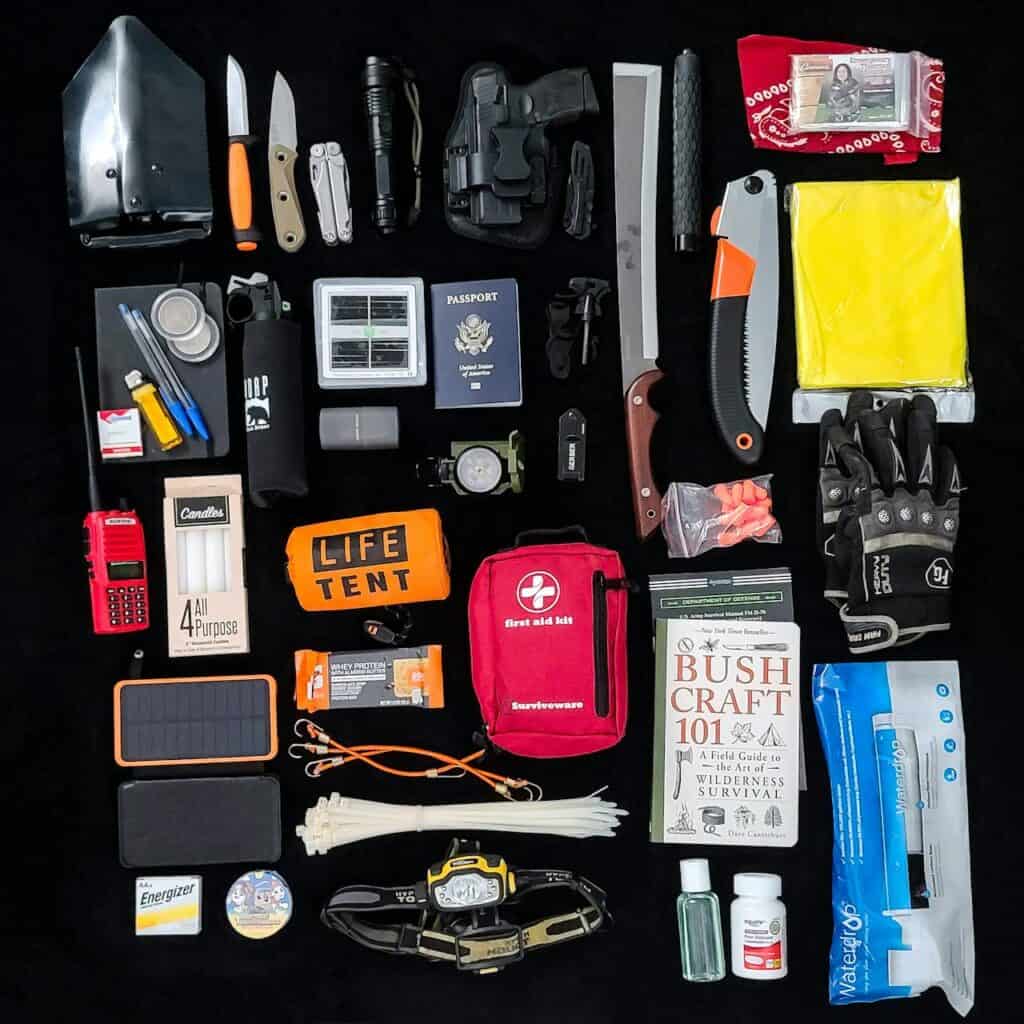
When something breaks mid-trip, these small items can be a lifesaver. A solid multi-tool replaces a full toolbox, duct tape handles leaks or loose panels, and zip ties hold just about anything together. They’re compact, light, and endlessly useful. One quick fix can prevent damage or delay. Keep them accessible, not buried deep in storage. You’ll use them more often than you think from gear adjustments to quick campsite fixes. Add a small roll of electrical tape and a mini sewing kit for quick repairs on clothing or tents. A little preparation keeps the journey running smoothly, no matter what happens.
7. Flashlight & Headlamp with Extra Batteries
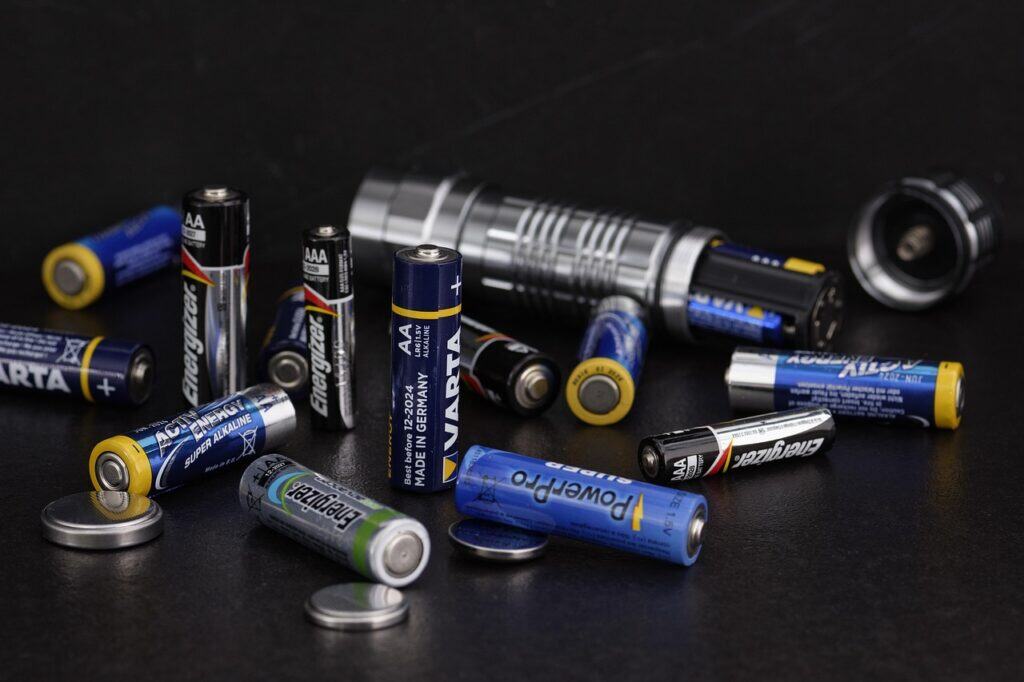
Darkness can turn minor repairs into major problems. A reliable flashlight helps you see where you’re working, while a headlamp keeps both hands free for changing a tire or checking the engine. Always pack spare batteries or choose rechargeable models you can power from your car. Try them before you leave to ensure they work. Night driving and roadside stops feel safer when you know you can light your surroundings instantly. A compact lantern adds steady light for cooking or setting up camp after dark. Keep all lights in an easy-to-reach spot so you’re never scrambling in the dark.
8. Blankets, Warm Layers & Rain Gear

Weather doesn’t care about your route plan. Keep a warm blanket, fleece layers, and a waterproof jacket in your trunk. Even summer nights can get cold in open country or at high elevations. A flat tire in a storm feels twice as bad when you’re shivering. Stay ahead of the forecast and layer smartly. You’ll stay warmer, drier, and more focused when the skies surprise you mid-journey. Add a pair of waterproof gloves and an emergency poncho for extra protection. Being prepared means discomfort never becomes a distraction when conditions shift suddenly.
9. Sun Protection & Window Shades

Hours in direct sunlight can leave you drained and overheated. Bring sunscreen, sunglasses, lip balm, and a wide-brimmed hat. Install simple window shades to block UV rays and keep the cabin cooler. It’s about protecting both your skin and your alertness. Sun glare and fatigue sneak up fast on long desert stretches. A shaded interior keeps you comfortable and helps your car’s AC work less hard. Pack extra water and a cooling towel for quick relief when the heat peaks. Small measures keep you steady and focused under the harshest sun.
10. Emergency Contact Info & Paper Copies

Phones fail when you least expect it. Write down your emergency contacts, insurance details, and roadside assistance numbers. Keep copies of your license, registration, and travel plans in a waterproof pouch. Paper copies still matter when batteries die or signals drop. If your phone is lost or damaged, you’ll still have everything you need to get help. It’s an easy safeguard that takes minutes to prepare and can save hours in crisis. Add a pen and small notebook for jotting down updates or directions. Sometimes the simplest tools make the biggest difference when tech fails.
11. Compact Jump Starter & Jumper Cables
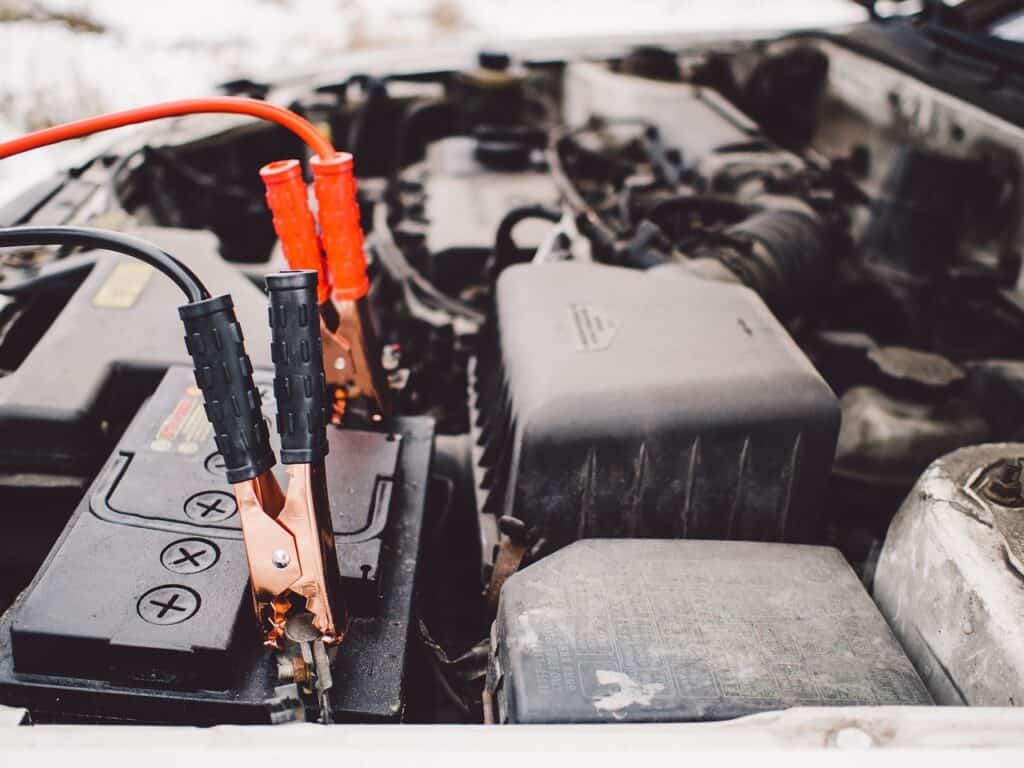
Car batteries die quietly and at the worst times. A portable jump starter can get your engine running without another vehicle nearby, while jumper cables are your safety net if help’s available. Check both before your trip, charge the starter fully, and store them in your trunk. With these two items, you’ll never be stranded by a dead battery again, no matter where you stop. Consider adding a battery tester to spot weak charges early. A quick check at rest stops can save you from an unexpected roadside stall later.
12. Trash Bags, Wet Wipes & Cleaning Supplies

A tidy car keeps spirits up during long drives. Bring small trash bags for wrappers, wet wipes for quick cleanups, and a microfiber cloth for windows and dashboards. Mess adds stress, and when you live out of your vehicle for days, order matters. Keeping the space clean makes each morning start fresh and keeps you focused on the drive ahead, not on clutter behind the seat. Add a small organizer or collapsible bin to keep essentials sorted. A little structure turns your car into a calm, functional travel space.